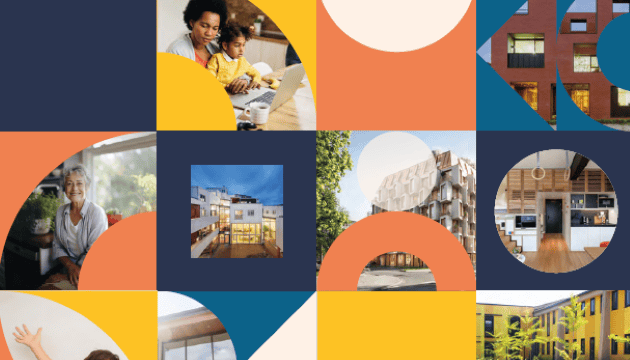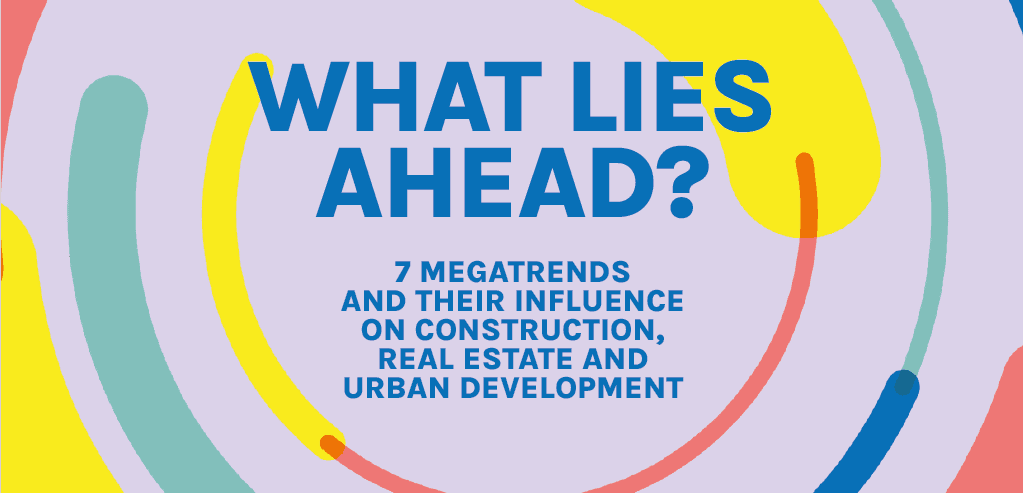
Seniors and housing: a model in need of reinvention
3 minutes of reading
(Français) Le vieillissement de la population n’est pas un phénomène nouveau. Mais l’augmentation de l’espérance de vie en bonne santé et l’arrivée massive des baby-boomers à la retraite accélèrent fortement le phénomène. Pour preuve, il y a en France depuis 2015 plus de +65 ans que de -18 ans ! Et en 2030, un français sur 3 aura +60 ans. Qui sont les seniors ? Quels sont leurs besoins et attentes ? Quelles implications sur les offres d’habitat ? Découvrez ci-dessous quelques éléments de réponse.
The fact that the population is ageing is not new. But the increase in healthy life expectancy and the massive retirement of baby boomers has significantly accelerated the phenomenon. For example, since 2015 there have been more over 65s than under 18s living in France! And in 2030, one Frenchman out of three will be over 60. Who are seniors? What are their needs and expectations? How does it impact the housing offers?
 The seniors of today are not the same as those of twenty years ago. The generation of baby boomers, that is arriving at retirement age en masse, is very different from preceding generations. They have a lifestyle based on an active, connected, healthy life, surrounded by family and friends.
We are too old at 35 for professional sports, too old at 50 for marketing, too old between 60 and 65 for public office, and too old at 70 for health professions! The term ‘seniors’ thus covers very different realities in life, where age is not the only criterion to consider. Family environment, frequency of social interaction, means, and physical and psychological health are all essential dimensions.
Today, people live an average of 20 years after age 60, or over one third of adult life! This major change naturally has given rise to new expectations and new demands from the seniors, which are based on three key priorities:
– Social connection and the guarantee to maintain their place in society during their retirement
– State of health and the desire to remain in their current residence if they become highly dependent
– The quality of life at home with individualized services, more comfort, and non-stigmatizing solutions.
The seniors of today are not the same as those of twenty years ago. The generation of baby boomers, that is arriving at retirement age en masse, is very different from preceding generations. They have a lifestyle based on an active, connected, healthy life, surrounded by family and friends.
We are too old at 35 for professional sports, too old at 50 for marketing, too old between 60 and 65 for public office, and too old at 70 for health professions! The term ‘seniors’ thus covers very different realities in life, where age is not the only criterion to consider. Family environment, frequency of social interaction, means, and physical and psychological health are all essential dimensions.
Today, people live an average of 20 years after age 60, or over one third of adult life! This major change naturally has given rise to new expectations and new demands from the seniors, which are based on three key priorities:
– Social connection and the guarantee to maintain their place in society during their retirement
– State of health and the desire to remain in their current residence if they become highly dependent
– The quality of life at home with individualized services, more comfort, and non-stigmatizing solutions.
 “The longer people live in their homes, the greater their attachment, the stronger the force of habit, and the greater their fear of change will be. Housing planning and adaptation remain some of the most important ways to favour a high-quality ageing process. Beyond housing, environment and access to services and transport, but also conviviality and the feeling of being respected and safe, determine the quality of a sustainable residence. That might be the definition of senior housing.”
“The longer people live in their homes, the greater their attachment, the stronger the force of habit, and the greater their fear of change will be. Housing planning and adaptation remain some of the most important ways to favour a high-quality ageing process. Beyond housing, environment and access to services and transport, but also conviviality and the feeling of being respected and safe, determine the quality of a sustainable residence. That might be the definition of senior housing.”
What is being a senior in 2016?
 The seniors of today are not the same as those of twenty years ago. The generation of baby boomers, that is arriving at retirement age en masse, is very different from preceding generations. They have a lifestyle based on an active, connected, healthy life, surrounded by family and friends.
We are too old at 35 for professional sports, too old at 50 for marketing, too old between 60 and 65 for public office, and too old at 70 for health professions! The term ‘seniors’ thus covers very different realities in life, where age is not the only criterion to consider. Family environment, frequency of social interaction, means, and physical and psychological health are all essential dimensions.
Today, people live an average of 20 years after age 60, or over one third of adult life! This major change naturally has given rise to new expectations and new demands from the seniors, which are based on three key priorities:
– Social connection and the guarantee to maintain their place in society during their retirement
– State of health and the desire to remain in their current residence if they become highly dependent
– The quality of life at home with individualized services, more comfort, and non-stigmatizing solutions.
The seniors of today are not the same as those of twenty years ago. The generation of baby boomers, that is arriving at retirement age en masse, is very different from preceding generations. They have a lifestyle based on an active, connected, healthy life, surrounded by family and friends.
We are too old at 35 for professional sports, too old at 50 for marketing, too old between 60 and 65 for public office, and too old at 70 for health professions! The term ‘seniors’ thus covers very different realities in life, where age is not the only criterion to consider. Family environment, frequency of social interaction, means, and physical and psychological health are all essential dimensions.
Today, people live an average of 20 years after age 60, or over one third of adult life! This major change naturally has given rise to new expectations and new demands from the seniors, which are based on three key priorities:
– Social connection and the guarantee to maintain their place in society during their retirement
– State of health and the desire to remain in their current residence if they become highly dependent
– The quality of life at home with individualized services, more comfort, and non-stigmatizing solutions.
Why is Bouygues Construction interested in this issue?
90% of people want to age in place, so housing plays an essential role in promoting the process of ageing well. A place of intimacy and memory, their residence becomes the main place in their lives after retirement. To be effective and appropriate, the housing offer should rely on personalized solutions, taking the specific needs of each person into account. Today, supply is inadequate to meet demand: only 6% of European housing is adapted. Many factors must be considered: comfort of use, accessibility of the building, and distance to businesses and services. Bouygues Construction wanted to lead a shared reflection process to help everyone initiate housing projects to respond to a desire shared by nearly the entire population: to live as long as possible at home. Thus it formed a working group made up of housing providers, sociologists, occupational therapists, and representatives of the individual services sector, guided by Serge Guérin, a sociologist specialized in ageing.The opinion of Serge Guérin
 “The longer people live in their homes, the greater their attachment, the stronger the force of habit, and the greater their fear of change will be. Housing planning and adaptation remain some of the most important ways to favour a high-quality ageing process. Beyond housing, environment and access to services and transport, but also conviviality and the feeling of being respected and safe, determine the quality of a sustainable residence. That might be the definition of senior housing.”
“The longer people live in their homes, the greater their attachment, the stronger the force of habit, and the greater their fear of change will be. Housing planning and adaptation remain some of the most important ways to favour a high-quality ageing process. Beyond housing, environment and access to services and transport, but also conviviality and the feeling of being respected and safe, determine the quality of a sustainable residence. That might be the definition of senior housing.”
Seniors: let them talk!
Find out about our proposals on ageing well in place next week on the blog.More reading
Read also




What lies ahead? 7 megatrends and their influence on construction, real estate and urban development
Article
20 minutes of reading

